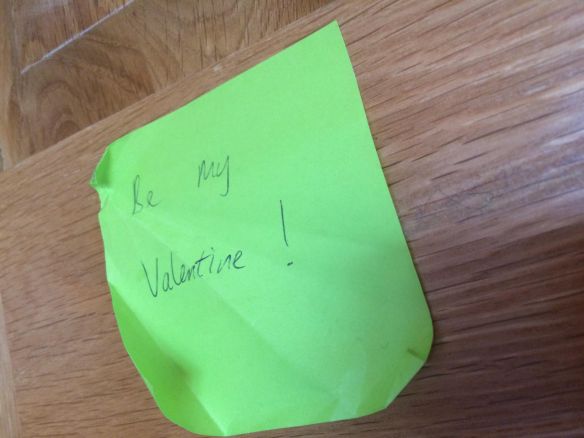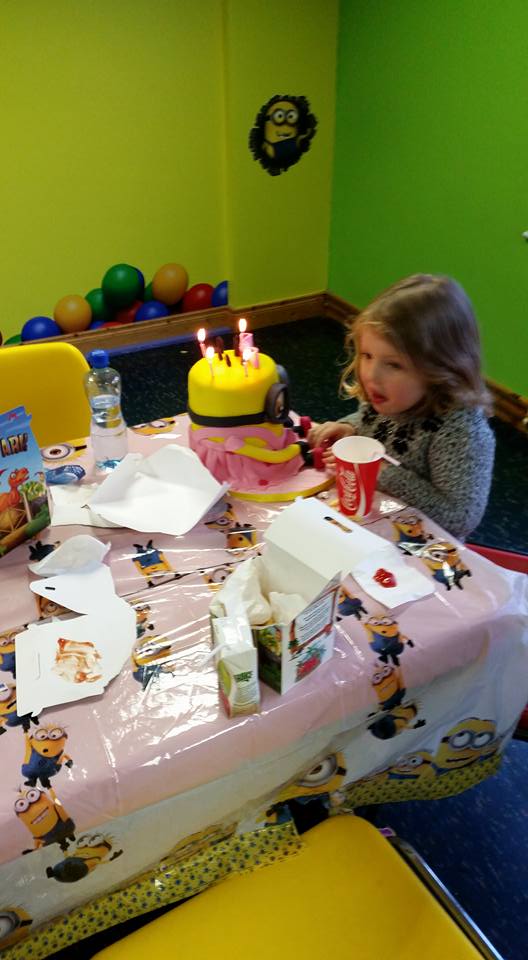I’ve a meeting in Dublin on Wednesday. It’s straightforward getting there: if you’re going the public transport route, you simply get a train to Dublin, then regardless of whether you come into Heuston or Connolly Station, you can catch the Red Luas to Smithfield and then it’s a ten minute walk. Easy peasy. Shouldn’t be complicated at all, right?
No, it shouldn’t. But this is Ireland, and we seem to have a tendency to make things more complicated than they need to be. And for people with mobility difficulties, public transport isn’t as convenient as it is for others.
I went down to Tullamore Train Station this morning (according to the Irish Rail website, passengers needing assistance are ‘advised’ to give twenty-four hours’ notice) to let them know that I intend to travel on the 09.29 from Tullamore to Heuston on Wednesday morning. I admit I did it as a bit of joke, to make a point. The guy who works there is lovely – I’ve nothing against him as a person – but he was reluctant to guarantee that I’d have assistance on Wednesday afternoon coming home. ‘If I’m here, I will definitely help you,’ was his response. If.
The assistance I, and many other wheelchair users need, is simply the provision of a portable ramp to enable me to disembark from the train safely. That’s all. In my case my chair is electric so there’s no manual pushing involved. But without the provision of a ramp, my independence is immediately compromised.
Okay, I admit that giving two days’ notice is a tad dramatic. But my attitude isn’t without basis. Just last month, a young wheelchair user got stranded on Platform 2 of Tullamore Train station and had to wait 30 minutes before it was decided that the train should pull into platform 1. The lift was out of order, as is often the case in Tullamore.
I’ve been stranded on a train twice before in my wheelchair because there wasn’t assistance waiting for me at the train station (and I always give as much notice as possible – okay, not always twenty-four hour notice, but I do try). It’s very annoying having to get off at the wrong station and either get a train or a taxi back. It eats into our time and financial resources. Our time isn’t viewed to be as valuable as everyone else’s, I don’t think.
Impairment doesn’t create inequality, society does. Having to give twenty-four hours’ notice to use a train is discrimination and yet, in spite of the many complaints made in relation to accessibility to Irish Rail (according to thejournal.ie, there were 12 complaints about accessibility in 2014. This 12 merely represents complaints made, not necessarily the number of passengers who experienced problems with regards to access), things seem to be getting worse, not better, for disabled passengers.
I’m not alone in experiencing these problems. Last year a friend of mine and wheelchair user, Ann Marie Champ, was denied assistance in Newbridge train station and was forced to continue to Kildare. (Ann Marie works in Dublin and commutes every day). Once in Kildare she had to wait for a taxi to arrive from Portlaoise to bring her to Newbridge. An enraged Ann-Marie remarked, ‘I flew to Australia last year and had to get six flights and had no issues. It only took five minutes over the phone to organise. Yet, I can’t get 20 minutes up the road because of the refusal to lower a piece of aluminium.’
Louise Bruton, the founder of a blog/accessibilty guide called Legless in Dublin, also had trouble with Irish Rail last November when the assistance she had requested in Heuston Station didn’t arrive, leaving her stranded on the train for twenty minutes. ‘The train was stopped further down the tracks than normal and the lights were dimmed, so I was in a scene from a 1990s teen horror flick,’ she told the Irish Independent. “I stuck my head out the door… I shouted again and again and all I could hear in return was my echo. I pressed the train’s emergency button but nothing happened. And then I tweeted. My responses gave me the emergency number for Heuston and, thankfully, Heuston’s very apologetic station manager, Liam Donegan, answered my call and rescued me.’
Ann-Marie and Louise’s experiences show that there is no dignity in travelling when you have a disability in Ireland. And now it’s been proposed by a Cork TD that travel pass holders should pay a subsidy of €6 for travel! For disabled people at least, this is outrageous. Many of us don’t drive and are solely dependent on public transport to get around. And even if was decided that €6 was reasonable, this still wouldn’t mean that disabled passengers would be guaranteed worry-free, hassle-free journeys.
I’m afraid I don’t have definite answers to these ongoing issues. There’s no doubt, however, that these practices are discriminatory. People need to continue to be vocal about this issue, because for me, as a contributing citizen, this isn’t good enough.
In the meantime, fingers crossed that I get to and from my meeting in Dublin on Wednesday, without incident!

 A Valentine’s love post-it from about six years ago my husband left for me on the inside of a press so I’d see it when I opened the cupboard to make my breakfast. It’s still there!
A Valentine’s love post-it from about six years ago my husband left for me on the inside of a press so I’d see it when I opened the cupboard to make my breakfast. It’s still there! 

